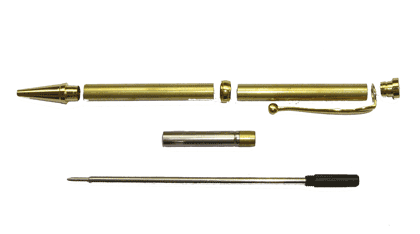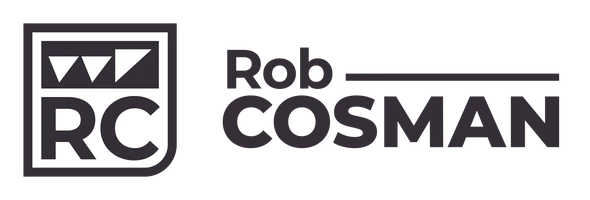Start by Turning Pens !
If you want to venture into the world of turning, but don’t have the money for a full size lathe and all of the associated equipment, you should consider turning pens as a less expensive way to dip your toe into the turning waters.

I started my turning adventure with pen making and I can attest that it can get addictive after you get the hang of it. The benefits of starting with pen turning is:
- It does not take a huge investment to get started
- You can get by with scraps of wood from your waste pile, or there are lots of folks selling pre-cut pen blanks on the web for good deals.
- You very quickly have a finished product that is both useful and fun to give away. I don’t say sell because that market is pretty saturated but go for it if you like.
- Finally, most of the turning skills you will learn in pen turning transfer over to bigger turning projects.
- Micro Lathes. These are the smallest and lightest lathes available. They are typically made mostly from extruded aluminum and come in a 1/3 horsepower and less. New prices range from $200 to $400 and if you can find a used model the price ranges from $150-325. These are primarily designed for turners to take to a show or any place they cannot take their bigger lathes. When I was stationed in Korea for two years, I purchased a Penn State PenPal micro lathe and made a couple hundred pens with it, so it will turn pens, but it cannot handle much else. I do not recommend a micro lathe as a stepping stone to learning to turn, but it’s a handy little machine.

- Mini Lathes. These are small benchtop model lathes. They are generally manufactured from cast iron or steel and are much heavier that a micro lathe. Still, they are light enough to be lifted to a bench top. They usually have ½ horsepower or less. The defining factor is they usually have a maximum turning diameter of 10 inches or less and with 15 to 20 inches between centers. New price ranges form $350-$500 . These are commonly available on the used market with prices between $150 and $300. They can easily handle turning smaller projects such as bottle stoppers, ornaments, and, of course, pens. These lathes are a good starter lathes for the woodworker looking to get into turning but wants the convenience of a lathe that can be transported and stored easily. The downsize is that if you really like turning and want to do more, you can quickly outgrow the size and power of a mini lathe.

- Midi Lathes. Midi lathes are basically sized up mini lathes with a bit more power and a bit more turning space. With optional add on bed extensions, these lathes can provide the turning capacity of a full-size floor model. These typically come in a 1 horse or more of power, have 12 inches of turning diameter and 18-20 inches between centers (without a bed extension). These will be slightly heavier than a mini lather but still capable of being picked up and place on a bench. New price ranges from $450-$700 and like mini lathes these are commonly available on the used market with prices between $250 and $400. This is the type of lathe that I currently use and which I recommend to beginning turners if they can afford it.

2. Essential Tools. To get started tuning pens there are some essential equipment that you will need that typically won’t come with your lathe unless you buy a new kit (a good way to go) or pick up a used kit from someone leaving the pen tuning world (highly recommended). You will need the following:
- Set of chisels. Get a starter set of chisels. I recommend a skew, gouge, and parting tool so you can learn those skills. I know the carbide tipped chisels are all the rage, but I think you should learn the basics of turning with traditional lathe tools.

- Pen Mandrel. This is a rod that the pen blank fits onto and are held secure while you turn.

- Barrel trimmer. Start off making the standard 10mm pen. Get a nice carbide barrel trimmer that will last. Avoid the non-carbide trimmers that will quickly dull on you.

- Drill. You will need to drill a center hole in your blanks. If you do not have a drill-press, then purchase pen blank drill chuck so you can drill horizontally on your lathe. A lot of turners prefer this method over a drill press; I do,I think it is more accurate.

- Pen press: This is a device that lets you press all the finished pen parts together.

3. Supplies: Finally, you need the supplies to make your pens. These are:
- Pen kits. These are all the hardware you need for your pen (barrels, springs, cartridge, etc.) I buy mine from Penn State Industries. Start off with the most basic 10mm pen kit you can find. If you buy them in bundles on sale you can usually find them for $1 to $3 a pen kit. Kits can get awfully expensive, upwards of $50. When you are learning, stay away from those.

- Wood blanks. You can make your own wood blanks from your scrap wood pile, but eBay or your local woodworking store is your friend here. I recommend forgoing cutting your own stock and just buy some pre-made stock and learn to turn. Stick with basic North American woods until you start getting the hang of things.

- Sandpaper. I prefer Abranet mesh kit which has all the grits you need for sanding. I find that Abranet lasts much longer than traditional sandpaper.

- Glue. Thick Cyanoacrylate glue.

- Some finish. Start off with an inexpensive basic utility finish oil and then buff it out with wax.

Now you are ready to start. If you have a pen turning friend, have them teach you. If not, YouTube is full of instructional videos. Watch a couple and start turning. Watch some more videos and keep practicing. Soon you will be turning out lots of pens and giving away a lot of nice pen presents. If you like it then I highly recommend taking a basic turning class. Now you are ready to start venturing into the greater turning world and your lathe is ready for the challenge.
Good luck.
COL Luther



